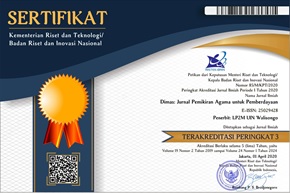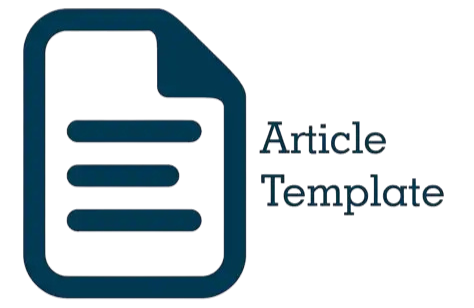Mentoring Preachers and Quran Teachers to Strengthen Religious Moderation in the Border Region of Gorontalo–North Sulawesi
DOI:
https://doi.org/10.21580/dms.v24i2.25124Abstract
Border areas are often associated with the complexity of identities, vulnerability to conflicts, and low security levels. This study aims to assist residents in border areas with diverse social, cultural, and religious differences. The selected areas are Gorontalo, which has a strong Islamic identity, and North Sulawesi, which is predominantly Christian. The study focuses on preachers and Quran teachers, as they hold a central role in conveying religious messages. The research method used is the Community Based Research (CBR) model with a descriptive approach. The results of the study found that religious moderation support through the internalization of moderate Islamic values, such as tolerance, rejection of violence, national commitment, and recognition of local traditions, successfully enhanced the understanding of religious moderation, although the increase was relatively small. Changes before and after mentoring, from understanding to a very understanding level of 10%. Understanding of moderation will be more optimal if mentoring activities are carried out continuously through formal and non-formal activities. This study recommends that religious moderation activities in formal forms need to receive non-formal mentoring in the form of implementing moderation values in everyday life so that they have relatively large potential in forming moderate attitudes in society's religion.
Downloads
Downloads
Published
Issue
Section
License

This work is licensed under a Creative Commons Attribution-ShareAlike 4.0 International License.
Copyright
The copyright of the received article shall be assigned to the journal as the publisher of the journal. The intended copyright includes the right to publish the article in various forms (including reprints). The journal maintains the publishing rights to the published articles. Therefore, the author must submit a statement of the Copyright Transfer Agreement.*)
Licensing

This work is licensed under a Creative Commons Attribution-ShareAlike 4.0 International License.
In line with the license, authors are allowed to share and adapt the material. In addition, the material must be given appropriate credit, provided with a link to the license, and indicated if changes were made. If authors remix, transform or build upon the material, authors must distribute their contributions under the same license as the original.
_______
*) Authors whose articles are accepted for publication will receive confirmation via email and send a Copyright Transfer Agreement.









